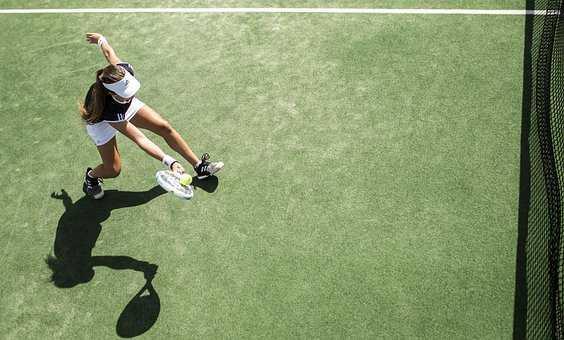Explore the World's Best Ideas
Join today and uncover 100+ curated journeys from 50+ topics. Unlock access to our mobile app with extensive features.
Perfect Pitch
It is far from being a gift a lucky few have. It can be trained: By exposing kids to tones and challenging them to match them before age 4, they can develop perfect pitch for the rest of their life. Even adults can learn some of this, though there is some brain plasticity at that young age that makes it easier.
So did the young Mozart have a gift for perfect pitch? Yes and no. If Mozart had been raised in some other family without exposure to music—or without enough of the right sort of exposure—he would certainly have never developed that ability at all.
1.23K
8.15K reads
Practice Vs Natural Talent
There is no such thing as natural talent or prodigies.
The right sort of practice carried out over a sufficient period of time leads to improvement. Nothing else.
1.29K
6.95K reads
When Practice Doesn't Lead To Improvement
- We all follow pretty much the same pattern with any skill we learn: We start off with a general idea of what we want to do, get some instruction (teacher, a book, or a website), practice until we reach an acceptable level, and then let it become automatic.
- But once you have reached this satisfactory skill level and automated your performance, you have stopped improving.
- Once a person reaches that level of “acceptable” performance and automaticity, the additional years of “practice” don’t lead to improvement.
1.24K
5.33K reads
Naive Practice And Purposeful Practice
- Naive practice means doing something repeatedly, and expecting that the repetition alone will improve one’s performance. This is how most people “practice” but it’s ineffective.
- Purposeful practice has well-defined, specific goals. Without such a goal, there is no way to judge whether the practice session has been a success.
1.32K
5.02K reads
Components Of Purposeful Practice
- Purposeful practice means having a plan - putting a bunch of baby steps together to hit a long term goal,
- Purposeful practice is focused.
- Purposeful practice involves feedback: you have to know whether you are doing something right and if not, what mistakes you’re making.
- Purposeful practice requires getting out of one’s comfort zone, feeling uncomfortable. If you never push beyond your comfort zone you’ll never improve.
- It involves a way to monitor your progress and a system to maintain your motivation.
1.36K
4.01K reads
Living In The World Of "Good Enough"
The reason that most people don’t possess extraordinary physical capabilities isn’t because they don’t have the capacity for them, but rather because they’re satisfied to live in the comfortable rut of homeostasis and never do the work that is required to get out of it.
The traditional approach to learning is not designed to challenge this: It assumes that learning is all about fulfilling your innate, fixed potential and that you can develop a particular skill or ability without getting too far out of your comfort zone.
1.2K
3.64K reads
Mental Representations
- They are mental structure that corresponds to an object, an idea, a collection of information, or anything else, concrete or abstract, that the brain is thinking about.
- They help with processing large amounts of information quickly, despite the limitations of short-term memory.
- Your skill in anything is based on the number and quality of “mental representations” you have for the skill.
- What sets expert performers apart from everyone else is the quality and quantity of their mental representations.
1.2K
3.33K reads
Principles of Deliberate Practice
- The field must be well developed. If there’s no competition to indicate skill, then it’s hard for there to be deliberate practice because the differences of the best are less clear.
- It requires a teacher who can provide practice activities
- Near maximal effort, constantly being taken out of your comfort zone by a teacher or coach. Not “fun”
- Well defined, specific goals, not aimed at “overall improvement.”
- Full attention and conscious action, no autopilot.
- Feedback and constant little improvements, modifying efforts in response to feedback
- Building and modifying mental representations
1.28K
2.82K reads
The Deliberate Practice Mindset
It offers the following view: anyone can improve, but it requires the right approach. If you are not improving, it’s not because you lack innate talent; it’s because you’re not practicing the right way.
Once you understand this, improvement becomes a matter of figuring out what the “right way” is.
1.22K
2.75K reads
Common Performance Myths
Improvement is possible is we learn to let go of these myths:
- The belief that one’s abilities are limited by one’s genetically prescribed characteristics.
- If you do something for long enough, you’re bound to get better at it.
- All it takes to improve is effort. If you just try hard enough, you’ll get better.
1.17K
2.77K reads
Effectively Practice A Skill Without A Teacher
Keep in mind three Fs: Focus. Feedback. Fix it.
Break the skill down into components that you can do repeatedly and analyze effectively, determine your weaknesses, and figure out ways to address them.
1.27K
3.33K reads
Motivation And Maintaining Motivation
- The best way to move past any plateau is to challenge your brain and body in a new way. Figure out the components of the skill that are holding you back, and find a way to push yourself more on those specific elements. Design a practice technique focused on improving that specific weakness.
- To keep working on something, you need to keep the reasons to continue high, and the reasons to quit low.
1.21K
2.95K reads
IDEAS CURATED BY
Traveling can make you smarter, more creative and improve your problem-solving abilities.
Nash 's ideas are part of this journey:
Learn more about books with this collection
How to build a network while working remotely
How to work remotely
How to manage finances while working remotely
Related collections
Different Perspectives Curated by Others from Peak: Secrets from the New Science of Expertise
Curious about different takes? Check out our book page to explore multiple unique summaries written by Deepstash curators:
16 ideas
Ian Nathaniel Puang's Key Ideas from Peak
Anders Ericsson, Robert Pool
15 ideas
Anup Chouhan's Key Ideas from Peak
Anders Ericsson, Robert Pool
7 ideas
Talha Mumtaz ✔️'s Key Ideas from Peak
Anders Ericsson, Robert Pool
Discover Key Ideas from Books on Similar Topics
9 ideas
Drive
Daniel H. Pink
16 ideas
Drive
Daniel H. Pink
5 ideas
Here’s why you need to have more bad ideas
ideas.ted.com
Read & Learn
20x Faster
without
deepstash
with
deepstash
with
deepstash
Personalized microlearning
—
100+ Learning Journeys
—
Access to 200,000+ ideas
—
Access to the mobile app
—
Unlimited idea saving
—
—
Unlimited history
—
—
Unlimited listening to ideas
—
—
Downloading & offline access
—
—
Supercharge your mind with one idea per day
Enter your email and spend 1 minute every day to learn something new.
I agree to receive email updates






